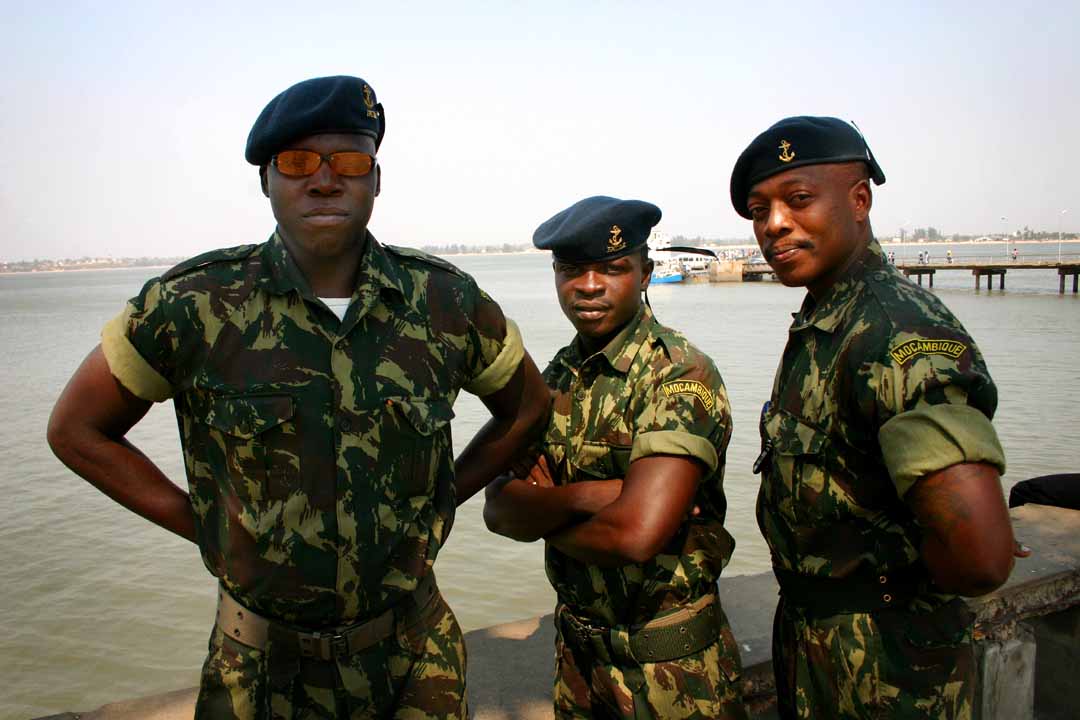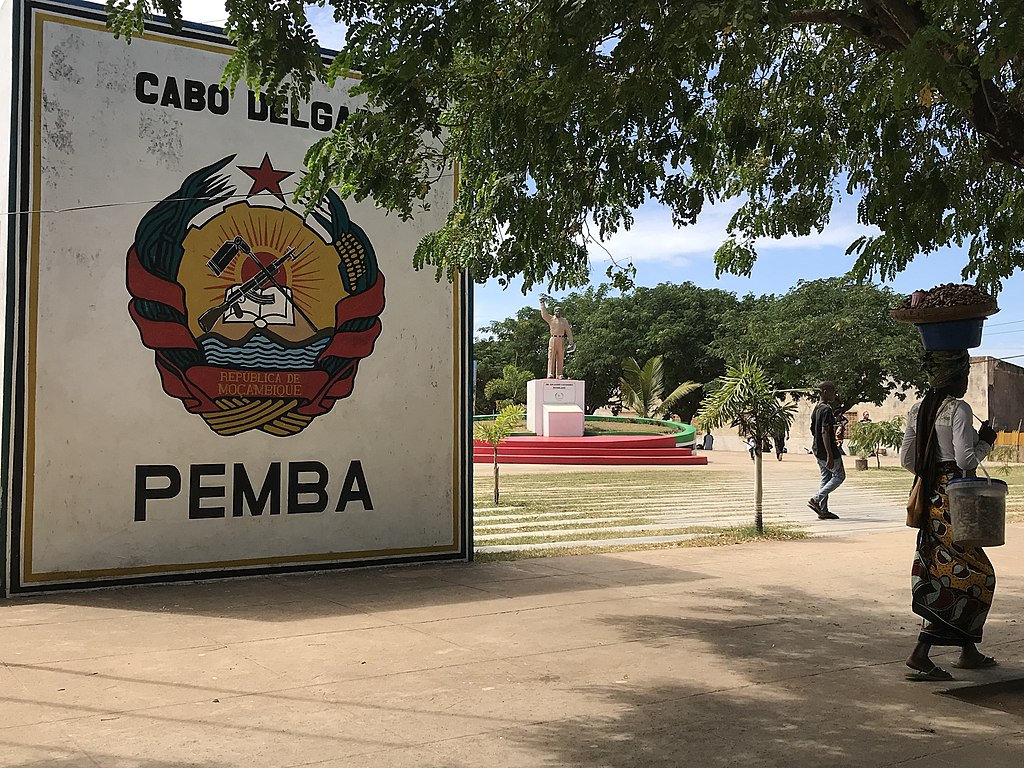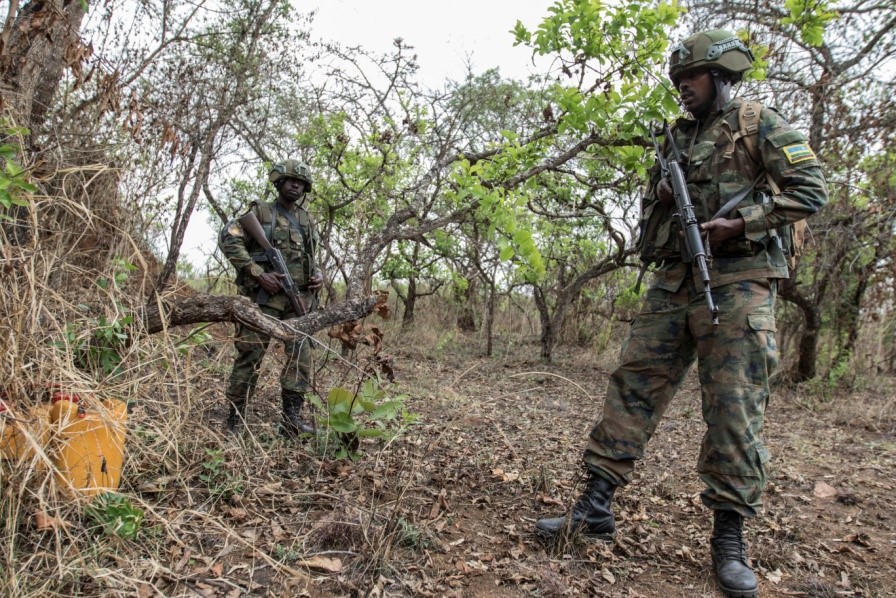
Mozambique army personnel are demoralized in their fight with IS-loyal fighters.
“Despite all efforts by the government to prove that the situation is returning to normal in Cabo Delgado province, terrorists continue to carry out attacks with a greater number of fighters”
Until recently, Mozambique asserted that the insurgents were retreating, and the country’s vital economic activities, including the export of natural gas from Cabo Delgado, would resume. However, the excerpted article from the Portuguese-language Evidencias.com reveals the insurgents are not just increasing in number, but also in sophistication and coordination. According to the article, more than 500 IS-loyal fighters[i] recently attacked a 40-man contingent of Mozambique’s Rapid Intervention Unit (RUI)[ii] near Quissanga—forcing its retreat to the Quirimbas islands. The article emphasized that only days before the attack on the RUI, the government claimed the IS-loyal fighters were only capable of small unit hit-and-run tactics. The article challenges government narratives about the insurgents’ impending demise. Based on interviews with Mozambican soldiers, the article describes that low morale, largely due to false information presented about the insurgency by the government, is manifest in the soldiers’ ranks. According to the article, only a true accounting of the insurgency will lead to the military receiving the support, weapons and equipment necessary to defeat the insurgents.
OE Insight Summary:
MOZ soldiers face resurgent IS-loyal fighters in Cabo Delgado and are demoralized by lack of sufficient weaponry and equipment for counter-insurgency, despite government assurances that the fighters are weakened.
Sources:
“Terroristas atacaram Quissanga com mais de 500 homens e perseguiram batalhão da UIR até Quirimbas (Terrorists attacked Quissanga with more than 500 men and pursued the UIR battalion to Quirimbas),” evidencias.com (Portuguese-language website specializing in investigative journalism on Mozambican affairs), 5 March 2024. https://evidencias.co.mz/2024/03/05/terroristas-atacaram-quissanga-com-mais-de-500-homens/
Terrorists attacked Quissanga with more than 500 men and pursued the UIR battalion to Quirimbas several after the President of the Republic, Filipe Nyusi, supported by the Minister of Defense, stated that the terrorists attack in small cells of three or four individuals and then flee.
Despite all efforts by the Government to prove that the situation is returning to normal in the province of Cabo Delgado, terrorists continue to carry out attacks with a greater number of fighters, which contradicts the discourse that has been propagated by the President and Minister of National Defense. UIR elements told Evidências that the insurgents in operations are accompanied by women (including pregnant women) and children and apparently use them as human shields…. In fact, the military has no doubt that the government has been providing false information about the real situation of terrorism in the province of Cabo Delgado.
Notes:
[i] This report about 500 total IS-loyal fighters involved in the attack near Quissanga was consistent with other major attacks by the group, including, for example, in 2020 when Voice of America (VOA) Português reported on 500 attackers in another operation in Cabo Delgado. See “Cabo Delgado: “A rede de terroristas está a ser desmantelada”, repete o chefe da polícia moçambicana,” VOA Português, July 20, 2020, https://www.voaportugues.com/a/cabo-delgado-a-rede-de-terroristas-est%C3%A1-a-ser-desmantelada-repete-o-chefe-da-pol%C3%ADcia-mo%C3%A7ambicana/5507231.html
[ii] The Unidade Intervenção Rapida (Rapid Intervention Unit, or RUI) was formed after the first IS-loyal insurgents’ attacks in 2017 and were supported by units of the national police and the national military. The RUI as intended to focus on the IS-loyal insurgents, but from the RUI’s inception it was insufficiently equipped and trained, partly because the insurgency commenced suddenly and caught the government off guard and because the government had prioritized economic development and not the military in the prior decade. As a result, the RUI suffered from low morale for years even before the resurgence of the IS-loyal fighters in 2024. See Meryl Demuynck and Gijs Weijenberg, “The Upcoming SADC Intervention: A New Way Ahead to Combat Terrorism in Mozambique?,” ICCT, July 22, 2021, https://www.icct.nl/publication/upcoming-sadc-intervention-new-way-ahead-combat-terrorism-mozambique.
Image Information:
Image: Mozambique army personnel are demoralized in their fight with IS-loyal fighters
Source: Steve Evans, https://commons.wikimedia.org/wiki/File:Mozambique_army_personnel.jpg
Attribution: CCA 2.0


